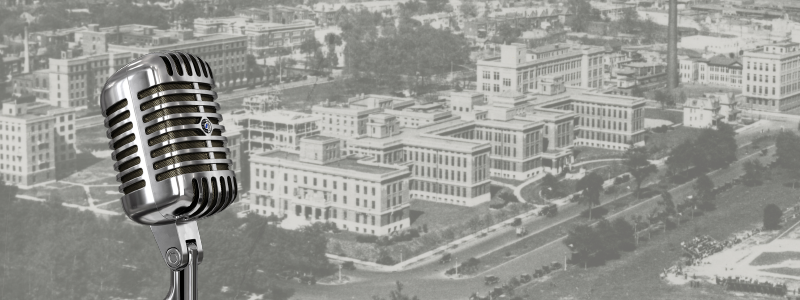
Washington University School of Medicine Oral Histories

Ida Martinson Oral History
Interviewer
Bryan Sisk MD, MSCI
Files
Download Interview Transcript [PDF] (126 KB)
Summary
Ida Martinson was interviewed by Brian Sisk on May 14, 2019 for approximately one hour and 3 minutes for the Pediatric Palliative Care Oral History Project.
Scope and Content
Dr. Martinson recalls her career in children dying at home beginning after a backyard conversation with her neighbor and mentor Dr. John Kersey. Dr. Kersey had mentioned that a child with cancer was going to be admitted to the hospital to die. Dr. Martinson questioned the “common practice” of admitting patients who were actively dying to the hospital. After that conversation, she was drafted by Dr. Kersey to assist in the same child’s healthcare. Dr. Martinson then describes her experience with preforming one of the first documented case studies of supporting a child to die at home with their family. She relates her motivation to help the child die with dignity at home to her own profound experience with helping her father in-law pass at home surrounded by family. Dr. Martinson describes her early experiences with clinicians who offered some resistance and skepticism about allowing children to die at home, but she also states that she was supported by most physicians. Dr. Martinson continues by describing how she continued her work to allow other children to die at home and how she grew the practice of dying at home by making herself available for other nurses and health care professionals internationally. Dr. Martinson then mentions the complexities of maintaining and growing her research in the field of dying at home. She concludes with her vision of the field growing to incorporate community medicine and respite care into priorities for healthcare teams for children suffering with chronic diseases.
Biographical Information: Interviewee
Ida Martinson, Ph.D., received her nursing diploma from St. Luke’s Hospital School of Nursing, both her Bachelor’s in Nursing Education and Master’s in Nursing Administration from the University of Minnesota, and her Ph.D. in Physiology from the University of Illinois at Chicago. Dr. Martinson worked as an Instructor in Nursing at St. Luke’s Hospital School of Nursing and at Thornton Junior College, an Assistant Professor and Chair of Research at the University of Minnesota School of Nursing, and Associate Professor, Director of Research, and Professor at the University of California at San Francisco, Chair and Professor of Nursing and Head of Health Sciences at Hong Kong Polytechnic University. She was the co-founder of the Children’s Cancer Foundation of Taiwan, President of Children’s Hospice International, won four American Journal Nursing Book of the Year awards. She has over 100 journal articles, over 50 book chapters, and one film. For the last ten years of her career, she went on to complete missionary and healthcare work in Asia. She enjoys skiing and reading.
Biographical Information: Interviewer
Bryan Sisk, MD, MSCI is an Assistant Professor in Pediatric Hematology and Oncology and an Assistant Professor in General Medical Sciences as a member of the Bioethics Research Center at Washington University in St. Louis. He completed medical school at the Cleveland Clinic Lerner College of Medicine at Case Western Reserve University. He completed his clinical training at St. Louis Children’s Hospital and Washington University School of Medicine.
Dr. Sisk was a clinical fellow in pediatric hematology and oncology when he initiated this Pediatric Palliative Care Oral History Project. As a trainee, Dr. Sisk had a strong interest in palliative care, the approach to the suffering of children, and the history of medicine. Prior to initiating this project, Dr. Sisk performed an in-depth review of the development of pediatric palliative care as a discipline and philosophy. This research culminated in a publication entitled, “Response to Suffering of the Seriously Ill Child: A History of Palliative Care for Children” in the journal Pediatrics. However, this historical review was limited to textbooks and publications. It lacked the personal experience of caring for these children and inspiring the development of a new clinical discipline. Inspired by David Clark’s oral history of the adult hospice movement, Dr. Sisk began to plan this pediatric oral history project.
Of note, this collection of oral histories is incomplete, and many important figures have not (yet) been interviewed. Dr. Sisk’s goal is to continue adding to this collection create a rich repository of personal insights and wisdom from leaders who changed the field of pediatrics.
Interview Date
2019-05-14
Collection Identifier
OH154-S25
Length
Approximately one hour and 3 minutes.
Restrictions
Users wishing to publish (in whole, or in part) content taken from the audio or transcript of this oral history interview must request, sign, and return a Statement of Use form to the Becker Archives. For detailed information regarding publication and use of this oral history, contact the Becker Archives (arb@wusm.wustl.edu).
Recommended Citation
Ida Martinson Oral History, OH154-S25, Bernard Becker Medical Library Archives, Washington University in St. Louis.
Disclaimer
The Becker Archives provides access to this oral history interview as a record of the past. This interview reflects the attitudes, perspectives, and beliefs of the interview participants, which may reflect outdated, biased, and offensive views and opinions. The Becker Archives does not endorse the views expressed in this interview, which may contain materials offensive to some users.




Notes
Access to the audio recording for this oral history may be obtained via approval of the archivists at Becker Library. Contact the archives for more information (arb@wusm.wustl.edu).